Privacy Policy
General
This Website Privacy Statement explains how Crisis Pregnancy Center Map (“CPC Map”) handles the information that you provide or that is otherwise collected. This Website Privacy Statement does not apply to apply to Google Maps, which provides the maps and directions for CPC Map. This Website Privacy Statement also does not apply to any websites that may choose to link to or otherwise display information from CPC Map or use data from CPC Map database of centers. You are encouraged to review the terms of the privacy policy for Google Maps and for any websites using the CPC Map website or otherwise displaying data from the CPC Map database.
How does the Crisis Pregnancy Center Map collect information online?
The Crisis Pregnancy Center Map may collect information in two ways:
(1) Passive Collection of Unidentifiable Information: CPC Map may collect information about your visits to the CPC Map website, without you actively submitting such information. Unidentifiable information may be collected using various technologies, such as cookies and web beacons. Cookies are small text files that are transferred to your computer’s hard disk by a website. Web beacons (also referred to as GIF files, pixels, or Internet tags) help CPC Map recognize a unique cookie on your browser. Your Internet browser automatically transmits to CPC Map some of this unidentifiable information, such as the URL of the website you just visited and the browser version your computer is operating. Passive information collection technologies can make your use of CPC Map easier by allowing the website to provide better service, customize based on consumer preferences, compile statistics, analyze trends, and otherwise administer and improve the website. Certain features of CPC Map may not work without use of passive information collection technologies. Information collected by these technologies cannot be used to identify you without additional identifiable information, and the website will not match additional identifiable information with information collected through the use of such tracking technologies.
(2) Personal Information You Submit: CPC Map collects personal information in three areas:
(a) The first is on the online form for suggesting a center to add to CPC Map.
(b) The second is the online form to update a center’s information as shown in CPC Map. Any names and/or emails voluntarily provided will not be made public, shown in CPC Map, nor be shared or used for any purpose outside of CPC Map unless we gain provider assent to be added to the Locator database.
(c) The third is the “Contact us” section, where users may provide feedback or ask a question. To protect your privacy, you should not provide CPC Map with any information that is not specifically requested.
Additional Information for non-US Residents:
IMPORTANT NOTICE: This Website Privacy Statement originates and is hosted on a website located in the United States, which has different data protection laws from those of other nations, and particularly member nations in the European Union. Due to differing laws and legal practice, be aware that law enforcement agencies in the United States may have access to your personal information. If you are a resident of country other than the United States, you acknowledge and consent to CPC Map’s collecting, transmitting, and storing your personal information out of the country in which you reside
